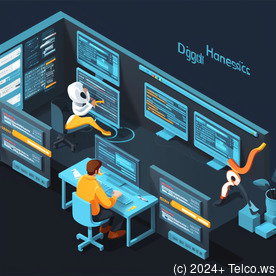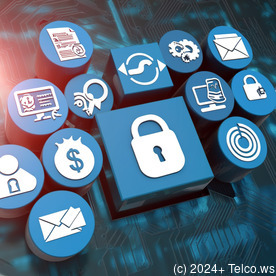
Comprehensive Guide to Digital Forensics
Introduction
In an age where cybercrime is on the rise, the field of digital forensics plays a crucial role in investigating incidents involving digital evidence. It is an essential aspect of law enforcement and cybersecurity, shedding light on various criminal activities and helping organizations recover from data breaches. This detailed article aims to explore the field of digital forensics, covering its definitions, methodologies, importance, challenges, applications, and tools used. By the end of this article, readers will have a robust understanding of digital forensics and an opportunity to invest in professional services for enhanced security and legal compliance.




What is Digital Forensics?
Digital forensics is the scientific process of identifying, preserving, analyzing, and presenting digital data in a manner that is legally acceptable. It involves the retrieval of data from digital devices such as computers, mobile phones, tablets, servers, and other electronic devices. These processes are crucial for solving crimes, understanding cybersecurity breaches, and gathering evidence for legal proceedings.
This is a multidisciplinary field that combines principles from computer science, information security, legal practices, and law enforcement. The goal is to extract and replicate data while maintaining its integrity, thereby ensuring that it holds up as reliable evidence in a court of law.




Importance of Digital Forensics
The importance of digital forensics becomes evident when considering the increasing prevalence of cybercrime and the vast amounts of digital data generated daily. Here are several critical reasons why digital forensics is vital:
- Crime Investigation: Plays a crucial role in law enforcement agencies conducting investigations into various types of criminal activities, from fraud to cyberbullying, child exploitation, and corporate espionage.
- Data Breach Response: Aids businesses in understanding the nature of data breaches, identifying vulnerabilities, and responding effectively to cyber threats.
- Evidence Collection and Preservation: Ensures that digital evidence is collected and preserved correctly for lawful proceedings.
- Legal Proceedings: Helps ensure that evidence can be presented to support claims or defend against allegations in court.
- Incident Analysis and Prevention: Vital in conducting analyses of security incidents to strengthen security measures and prevent future breaches.




Types of Digital Forensics
There are several branches of digital forensics, each tailored to specific scenarios or devices, including:
- Computer Forensics: Examination of data stored on computers, including internal and external hard drives.
- Mobile Forensics: Recovery of data from mobile devices like smartphones and tablets.
- Network Forensics: Monitoring and analyzing network traffic to detect unauthorized access or malicious activities.
- Cloud Forensics: Retrieving and analyzing information from cloud service providers while navigating jurisdiction and data integrity issues.
- Database Forensics: Recovery and analysis of databases in cases of fraud or unauthorized access.




Methodologies in Digital Forensics
Digital forensics employs several methodologies to ensure the rigorous analysis of evidence while preserving its integrity:
- Preparation: Establishing a clear understanding of the investigation, creating methodologies, and selecting tools required.
- Identification: Identifying potential sources of data and determining methods for extraction.
- Collection: Gathering data meticulously while ensuring compliance with legal standards.
- Examination: Analyzing collected data to uncover pertinent information using specialized software.
- Analysis: Examining data in detail to draw insights for the investigation.
- Presentation: Compiling findings into coherent reports critical for legal and law enforcement entities.




Challenges in Digital Forensics
Even with meticulous planning, the field faces specific challenges:
- Rapid Technology Changes: Keeping up with new devices, software, and data formats.
- Data Privacy Concerns: Navigating legal frameworks and ethical challenges regarding data consent.
- Cloud Data Retrieval: Complications due to issues of jurisdiction and service provider access.
- Volatility of Data: Digital evidence can change or be deleted before preservation.
- Complex Data Encryption: Accessing certain pieces of digital evidence can be challenging due to strong encryption.




Tools and Technologies in Digital Forensics
A variety of tools and software are available to aid forensic investigations, including:
- EnCase: Comprehensive software for data acquisition, analysis, and reporting.
- FTK (Forensic Toolkit): Valuable for searching and visualizing data on various devices.
- Autopsy: An open-source platform for analyzing hard drives and smartphones.
- Cellebrite: Specializes in extracting data from mobile devices.
- Wireshark: A network protocol analyzer used for analyzing network traffic.
- X1 Social Discovery: Focuses on collecting and analyzing social media data.




Applications of Digital Forensics
Digital forensics has wide-reaching applications across various industries, including:
- Law Enforcement: Assisting with investigations related to cybercrime and fraud.
- Corporate Security: Helping organizations respond to data breaches and insider threats.
- Legal Proceedings: Providing evidence for litigation in civil cases.
- Incident Response: Quickly analyzing data breaches and advising on cybersecurity practices.
- Intellectual Property Protection: Investigating theft of trade secrets and proprietary information.




Conclusion: Invest in Digital Forensics
As our reliance on digital tools expands, so does the necessity for reliable digital forensics services. Whether you are a business decision-maker aiming to protect sensitive information, a legal professional needing to gather evidence, or an individual facing claims of wrongdoing, digital forensics can provide invaluable support.
Secure Your Digital Forensics Solutions Today!
Are you ready to enhance your security and ensure compliance with digital evidence? Invest in expert digital forensics services that can mitigate risks and support your investigations. As stated, the price for our comprehensive digital forensics assessment and investigation package is $749.99. Please proceed to our Checkout Gateway and use our Payment Processor to pay the amount of $749.99 in favor of our company, following the instructions. Once you have completed your payment, please contact us via email, phone, or our website with the payment receipt and your details to arrange your digital forensics services. Thank you for your interest and patronage!




